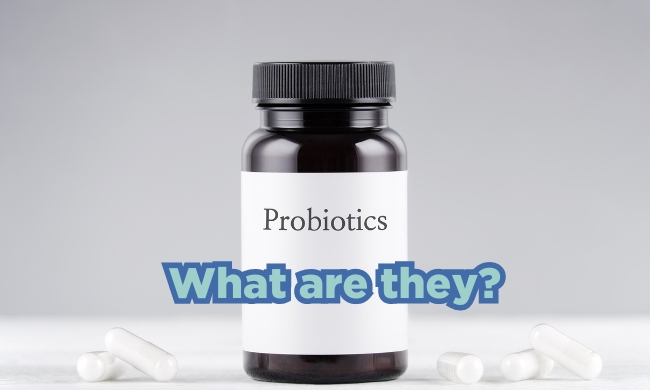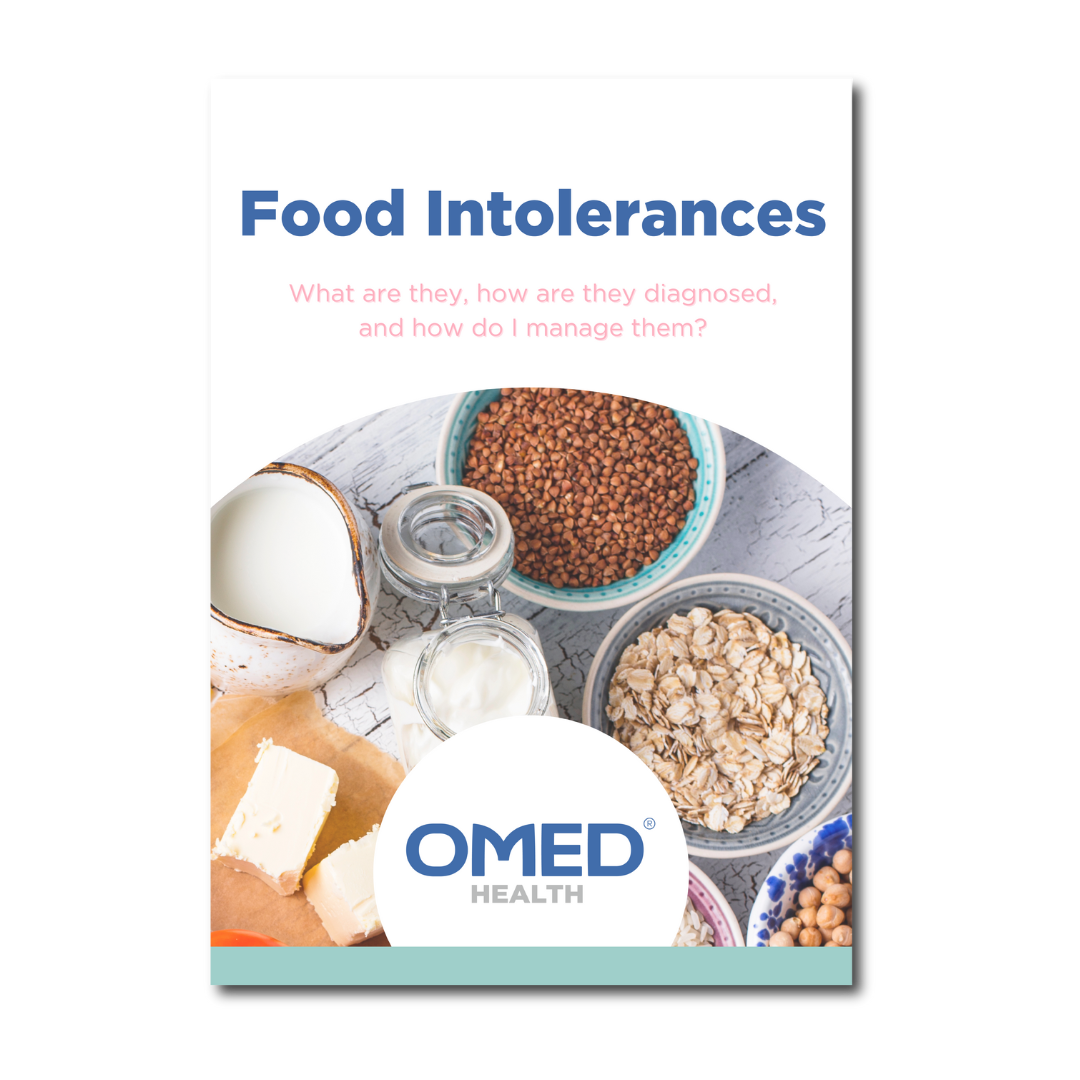You might have heard of probiotics and gut health a lot lately; it is a hot topic amongst many news articles and social media with people praising them for their health benefits. The main question you likely have is what are probiotics, and how can they help me? Probiotics are live microorganisms that can be supplemented via food sources to provide health benefits.
These microorganisms can either be certain types of bacteria or yeasts. Bacteria is usually assumed to be something that can make you sick, however, there are many beneficial bacteria in and on our bodies – probiotics are made of these ‘good’ bacteria that can help your body remain healthy (1).
Probiotics and gut health go hand-in-hand as they can support the system in your body called the microbiome. Everyone’s microbiome is unique, made up of a diverse community of microorganisms that live both in and on the body. The important qualities that a microorganism must have to be classified as a probiotic are that they must be: alive, safe to ingest or apply topically (applied directly onto body surface such as the skin), and have a proven beneficial effect on the body.
The most common place where microorganisms that are helpful for our health are found, is in our gut, but there are several other locations where the body hosts beneficial microbes, such as the mouth, skin, and lungs (2). Many types of bacteria can be considered to be probiotics but the most common are the ones you may have heard of before such as Lactobacillus bacteria commonly found in yoghurts, and Bifidobacterium which are found in some dairy products.
Did you know, some exotic fruits such as lychees and mangosteens also contain probiotics? These are made of yeast such as Saccharomyces boulardii (3).
What do probiotics do?
On the shelves of high street shops are endless numbers of probiotics with different ingredients, meaning it can sometimes be overwhelming to understand how they work, what they do, and what benefits they may bring to you.
The main role of probiotics is to maintain a healthy microbial balance in the body. When you have an infection, harmful bacteria may be invading areas of the body they do not normally inhabit and multiplying rapidly. Different species can be responsible for different types of infection, such as Streptococcus which causes strep throat, E. coli and Klebsiella species which are commonly responsible for urinary tract infections, and Bordetella pertussis which causes whopping cough (4).
Probiotics can help to restore the microbial balance in your body, making it easier for your body to fight off these harmful bacteria, which in turn makes you feel better.
Different probiotics work in different ways, and this can depend on what kind of microorganism they are. Harmful bacteria like to live in a slightly alkaline environment, which is why our stomach is acidic, to kill most of them off before they reach our intestines (4). Probiotic bacteria like Lactobacillus and Bifidobacterium produce acids such as acetic acid, lactic acid, and propionic acid.
These acids cause the pH of the body to lower which prevents harmful bacteria from making it past the stomach. Probiotics can also produce antimicrobial compounds that can target infections, compete with harmful bacteria for nutrients, destroy toxin receptors, and improve immunity (5).
Probiotics can also help with digestion, create vitamins, help break down and absorb medications, and support the cells in the gut in preventing harmful bacteria that you have consumed through food or drink from entering the blood. The balancing act between harmful bacteria and probiotics is occurring in the body constantly. As we mentioned previously, our microbiomes are all unique which means some people may need more help in achieving an equilibrium in their guts.
Therefore, whilst not all of us need probiotic supplements (5), some might. We would suggest talking to a healthcare professional before starting a new supplement to ensure that they are right for you.
Probiotics can help prevent and treat several different acute and chronic infectious diseases. There are many factors that can weaken the body’s resistance to infection, resulting in viral, inflammatory, and degenerative diseases (4). Did you know, that treatments for these diseases such as antibiotics can also alter the microbiome of the stomach, causing the natural levels of beneficial bacteria to drop? The aim of supplemental probiotics is to improve cellular well-being and increase the body’s natural defense mechanisms (4).
Dysbiosis is a term used for the imbalance of microbes inside the body, and has been associated with inflammatory bowel disease (IBD), small intestinal bacterial overgrowth (SIBO), and irritable bowel syndrome (IBS). Studies have found that improving the gut microbiota balance by consuming probiotics can improve dysbiosis symptoms in some patients, for example, Saccharomyces boulardii for SIBO and IBS (6) (7).
The development of IBS is associated with a change in the gut microbiome by an uncontrolled immune response to gut microbiota which results in ulcers and fibrosis. Food substances containing probiotics can be used to replace the beneficial bacteria in the gut and therefore could improve the symptoms of IBS (6).
You can increase the number of beneficial bacteria in your body through food, drinks, and supplements, in fact, you may already have such foods in your daily diet, such as yoghurt and pickles, which contain a host of probiotics that can benefit your body (8). Dietary supplements can add probiotics to your diet, but it is important to note that these are not medications that can be used to replace any existing medication you may be taking.
You must always talk to your healthcare provider before making any major changes to your diet or consuming any kind of supplement and remember, your body is unique so what works for you might not work for your friends and relatives and vice versa!
How can OMED Health support your health journey?
Whilst probiotics and gut health are a good pair, just because they work for someone else, does not mean it will definitely work for you. If you are living with uncomfortable digestive symptoms, taking a simple at-home breath test can help to pinpoint the underlying cause. If you have struggled with your gut health and think you could be suffering from small intestinal bacterial overgrowth or food intolerances, you can find out how to refer yourself for our hydrogen and methane breath test kits here.
We are soon to launch the OMED Health Breath Analyzer and App, which has been developed to help track and monitor your gut health and treatments over time. It can also assist you in tracking the effectiveness of probiotics in managing your condition. Take this opportunity to join the waitlist to ensure you get priority access.
References
- Hill, Colin, Francisco Guarner, Gregor Reid, Glenn R. Gibson, Daniel J. Merenstein, Bruno Pot, Lorenzo Morelli, et al. ‘The International Scientific Association for Probiotics and Prebiotics Consensus Statement on the Scope and Appropriate Use of the Term Probiotic’. Nature Reviews Gastroenterology & Hepatology 11, no. 8 (August 2014): 506–14. https://doi.org/10.1038/nrgastro.2014.66.
- Nagpal, Ravinder, Ashwani Kumar, Manoj Kumar, Pradip V. Behare, Shalini Jain, and Hariom Yadav. ‘Probiotics, Their Health Benefits and Applications for Developing Healthier Foods: A Review’. FEMS Microbiology Letters 334, no. 1 (1 September 2012): 1–15. https://doi.org/10.1111/j.1574-6968.2012.02593.x.
- Fijan, Sabina. ‘Microorganisms with Claimed Probiotic Properties: An Overview of Recent Literature’. International Journal of Environmental Research and Public Health 11, no. 5 (May 2014): 4745–67. https://doi.org/10.3390/ijerph110504745.
- Tegegne, Bantayehu Addis, and Bekalu Kebede. ‘Probiotics, Their Prophylactic and Therapeutic Applications in Human Health Development: A Review of the Literature’. Heliyon 8, no. 6 (22 June 2022): e09725. https://doi.org/10.1016/j.heliyon.2022.e09725.
- Amara, A. A., and A. Shibl. ‘Role of Probiotics in Health Improvement, Infection Control and Disease Treatment and Management’. Saudi Pharmaceutical Journal 23, no. 2 (1 April 2015): 107–14. https://doi.org/10.1016/j.jsps.2013.07.001.
- Choi CH, Jo SY, Park HJ, Chang SK, Byeon JS, Myung SJ. A Randomized, Double-blind, Placebo-controlled Multicenter Trial of Saccharomyces boulardii in Irritable Bowel Syndrome. Journal of Clinical Gastroenterology. 2011 Sep;45(8):679–83. DOI: 10.1097/MCG.0b013e318204593e
- García-Collinot, G., Madrigal-Santillán, E.O., Martínez-Bencomo, M.A. et al. Effectiveness of Saccharomyces boulardii and Metronidazole for Small Intestinal Bacterial Overgrowth in Systemic Sclerosis. Dig Dis Sci 65, 1134–1143 (2020). doi: 10.1007/s10620-019-05830-0
- Syngai, Gareth Gordon, Ragupathi Gopi, Rupjyoti Bharali, Sudip Dey, G. M. Alagu Lakshmanan, and Giasuddin Ahmed. ‘Probiotics – the Versatile Functional Food Ingredients’. Journal of Food Science and Technology 53, no. 2 (February 2016): 921–33. https://doi.org/10.1007/s13197-015-2011-0.

